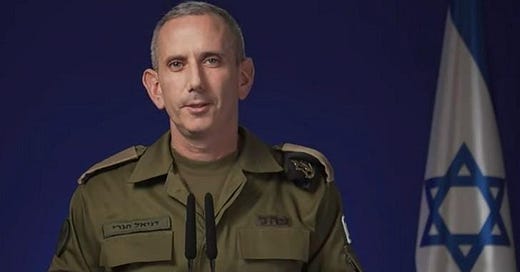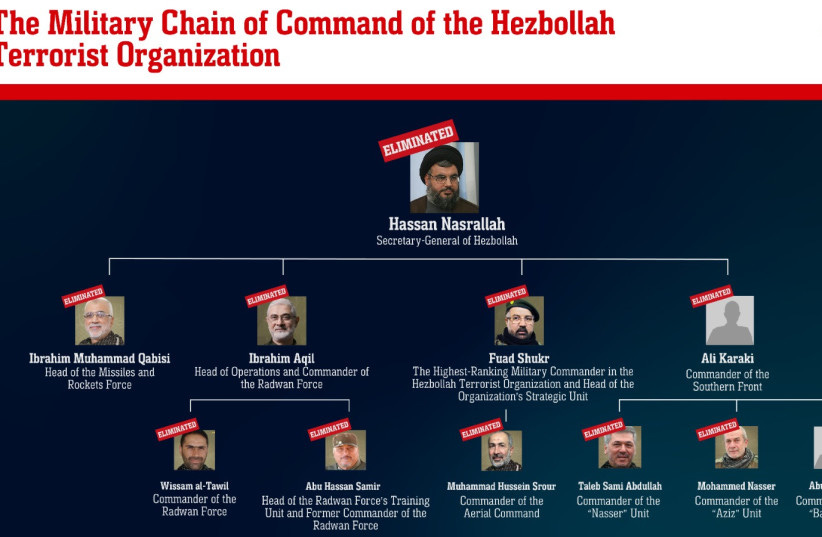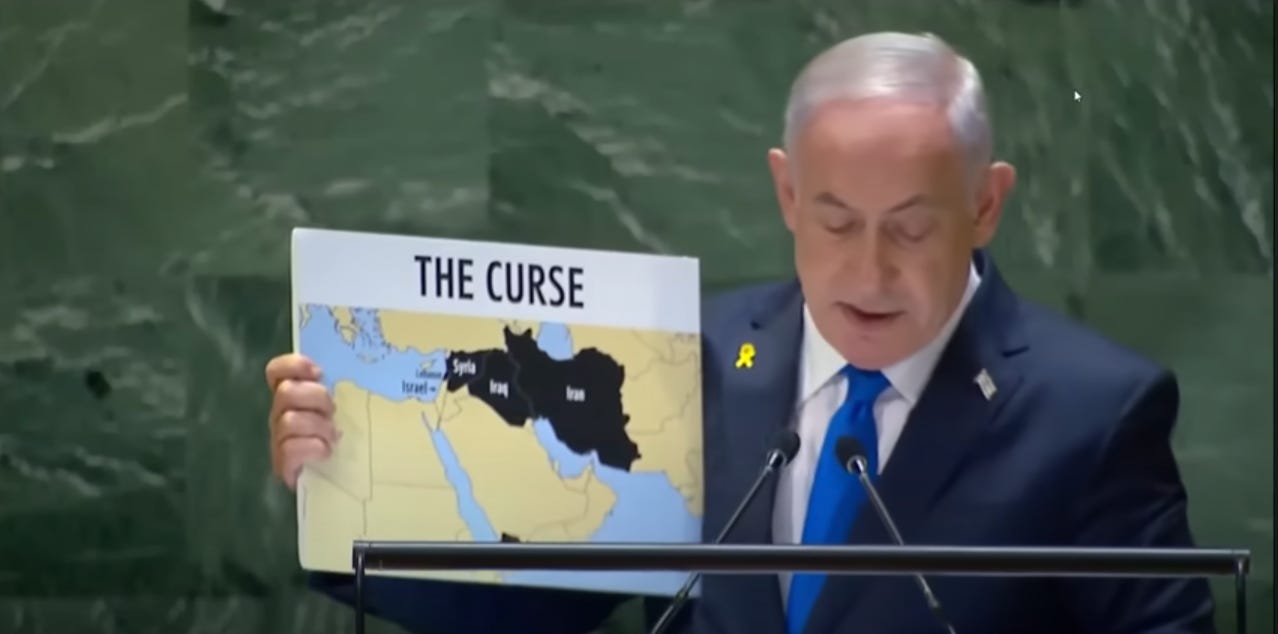Smart power, the 2024 Hebrew edition
Israel just coupled its hard power with stunning intelligence during a soft power low to create something smart. It's something to smile about.
In the past few months, Israel under Benjamin Netanyahu’s leadership has done many remarkable things. Most that easily come to mind are operational successes. But these when taken individually can obscure how Israel has fused superior intelligence and hard power to eke out these stunning operational victories in a soft-power vacuum.1
The operational successes, in brief
Let’s start with the south. In their much-contested Rafah operation, they sealed off Hamas’s resupply and escape route by taking control of the Philadephi Corridor. On July 13, they assassinated Mohammed Deif, the head of the Ezzedeen al-Qassam Brigades, Hamas’s military wing. Then, on July 31, they stunningly assassinated Hamas’s top leader, Ismail Haniyeh while he was in the heart of IRGC territory in Tehran to attend the inauguration of Iran’s new President, Masoud Pezeshkian. This not only decapitated the head of Hamas but sent a clear signal to the Iranian regime that Israel could strike it anywhere at will. Between these events, Israel also retaliated against Houthi drone strikes, setting the Red Sea port of Hodeidah in Yemen ablaze and signalling to regional actors that Israel will not let acts of war against it go unpunished.
As August came to a close and with the walls closing in on Hamas, it is probable that Yahya Sinwar, the 10/7 architect and, now, head honcho of a degraded and trapped Hamas, decided to kill six hostages in an attempt to amplify division in Israeli society and possibly force Netanyahu to throw him a lifeline.2 If so, Sinwar’s plan surely succeeded in amplifying dissent but ultimately failed to achieve its principal goal. No lifeline was cast and a strategic decision to compromise was struck. That decision has since led to a remarkable turn of events.
The compromise was not between Hamas and Israel. It was not the foolish ceasefire that so much of the international community had pushed for without having to incur the lethal and potentially existential costs that Israel must endure. It was a compromise, rather, between Netanyahu and Yoav Gallant, his Minster of Defence. Whereas Bibi wanted to focus IDF operations on Hamas in Gaza, Gallant wanted to refocus on Hezbollah in the north and Lebanon and also to reach a ceasefire deal with Hamas for hostage releases. The compromise was a refocusing of effort to the north but without a deal or losing control of the Philadephi Corridor.
The deal prevented the political rupturing of Netanyahu’s government, quelled strikes and protests in Israel, retained Israel’s upper hand in Gaza, and allowed it to finally address what it had put off for nearly a year—Hezbollah’s brazen attacks on the north of Israel which have caused an internal refugee crisis as tens of thousands of Israelis were forced to leave their homes, many of which have been destroyed.
On to the north. On the 17th and 18th of September, as is now famous, Israel conducted a kinetic cyber attack that caused thousands of handheld pagers and hundreds of walkies-talkies distributed to Hezbollah operatives to explode, taking out thousands of their operational force, disrupting their communications ability, and undermining their trust in each other (since they were infiltrated). As I and many others reported, this covert operation was the stuff of Bond movies.
Not losing the tempo, on September 20, an Israeli airstrike took out Ibrahim Aqil, Hezbollah’s head of operations, along with top commanders of its elite Radwan Force, as they met in Beirut. Aqil was the mastermind of the Hezbollah attack that killed 241 US military personnel including 220 Marines in 1983.
Other top commanders were also removed, but the events of the past days eclipsed even these developments. While Netanyahu delivered a blistering speech to a half-empty room at the UN’s 79th Session of the General Assembly, the IDF was prepared to take out Hezbollah’s leader, Hassan Nasrallah, and the remaining top brass with a targeted strike using a bunker-busting bomb made in the USA.
Netanyahu is a gifted orator and this was a great speech even by his standards. I can only imagine the nerves of steel it takes to deliver such a speech knowing at the time that just before it, as reported in The Times of Israel, he had called in the strike that effectively decapitated Hezbollah. Anyone who hasn’t yet seen it should have a listen:
It took some time for the dust to settle literally and figuratively, but the elimination of Nasrallah was eventually confirmed, including by IDF spokesman Rear Admiral Daniel Hagari, who as Daniel Gordis noted, rarely, if ever, smiles.
The turn of events is no less than remarkable. Here is the current org chart for senior command in Hezbollah:
Does it mean the war is over? Of course not. Iran appears to already have been grooming Nasrallah’s cousin Hashem Safieddine for the position, as reported in multiple news sources. Safieddine has been reported to be less moderate than Nasrallah, which might mean that the IDF has its next target. Many things could happen, from an attempted ground invasion into the north to a return to suicide attacks. We simply do not know, at present.
Fusing hard power with smarts
What Israel has accomplished operationally has been stunning. The world is stunned. The part that supports Israel is euphoric and proud, as it should be. Many of those celebrating are in the Muslim world, as Sheri Oz reports from Israel. The part that hates Israel is or will soon be full of faux moral condemnation, as was on display by several despicable world leaders at the UN this past week. Both secretly agree, however, that Israel has pulled off multiple incredible feats. The haters only wish that they could do so well.
These operational victories are not only technological feats, they are also psychological knockout blows. The psychological effect of the pager attacks was the equivalent of dropping a 2000-pound bunker-busting bomb on trust for it revealed the depth of Israeli intelligence penetration into the adversary’s communication pipeline. After these attacks, no one in Iran and Hezbollah knew who could be trusted and how they could communicate safely.
And no one knew in the immediate aftermath and still to this day whether the Israelis have other tricks up their sleeve just waiting unofficial and unannounced rollout. This means the adversary cannot trust the technology and infrastructure around them. They are now living in the nightmare of a potentially booby-trapped environment, uncertain of what standard devices might injure or kill them. It is hard to go on the offensive when you find out that you’re just a rat in an electrified cage who didn’t know it.
All of this was very smart because it was highly targeted, rapid, and reliant on unbelievable intelligence signalling deep penetration of the adversary. The pager and walkie-talkie attacks incapacitated the lower ranks first and then Israel stunningly eliminated all senior commanders, including the leader of Hezbollah—in two weeks!
It was smart because of the genius use of the element of surprise. Would Nasrallah suspect that he would be targeted for assassination when Israel’s PM was busy hobnobbing with world leaders (at least those willing to talk to him) in New York? Surely not. Such an important mission would presumably require his full attention and he would have to be in the war room monitoring the situation. Little did Nasrallah know that when Bibi took to the podium at the UN his and the remaining top commanders’ fates were sealed. This was brilliant, and in some ways even more impressive than the pager attacks because as was widely reported, it appears Nasrallah and company were assembled to watch Netanyahu’s speech. Bibi was likely the last face they saw before they bit the dust.
The attack was not only brilliant because of the use of misdirection but also because of the message it sent: in two weeks, we destroyed all trust in your network, but look at ours—I, the PM of Israel, can trust the IDF to conduct one of the most important military operations while I’m at the UN in New York speaking to you. We have trust, we have comms, we have our shit together—and you don’t. You are largely eliminated and what’s left is in disarray. Powerful stuff.
The art of thriving in a soft power slump
Israel’s operations in the last two weeks were also smart because they took advantage of the country’s soft power deficit. While a good part of the world was busy telling Israel how it was genocidal and committing war crimes; how it was an apartheid state; how it needed to reach a ceasefire with the truly genocidal Hamas and the truly genocidal Hezbollah; and how it better not risk escalating tensions with the truly genocidal theocracy, Iran—it decided to use the vilification, hypocrisy, and lies to its advantage.
The soft power deficit imposed on it, including by its closest strategic ally, the US, could have been soul-crushing, forcing it to adopt ceasefire plans that would only ensure that it would face new tragedies in the years to come. But it was precisely this low in soft power that gave it no other choice. If it could not allow itself to be led to the gallows on a leash, it would have to redefine the narrative through stunning victories that the leash holders said were impossible.
Israel showed the world that the seemingly impossible was possible. And if the top dogs of the foreign policy world got something as serious as that wrong, then who would trust the default narrative? For the time being, even the Biden Administration is on board, having issued a statement that starts as follows:
Hassan Nasrallah and the terrorist group he led, Hezbollah, were responsible for killing hundreds of Americans over a four-decade reign of terror. His death from an Israeli airstrike is a measure of justice for his many victims, including thousands of Americans, Israelis, and Lebanese civilians.
The strike that killed Nasrallah took place in the broader context of the conflict that began with Hamas’s massacre on October 7, 2023. Nasrallah, the next day, made the fateful decision to join hands with Hamas and open what he called a “northern front” against Israel.
The United States fully supports Israel’s right to defend itself against Hezbollah, Hamas, the Houthis, and any other Iranian-supported terrorist groups. Just yesterday, I directed my Secretary of Defense to further enhance the defense posture of U.S. military forces in the Middle East region to deter aggression and reduce the risk of a broader regional war.
While the statement closed with a return to the ultimate goal of de-escalation, there was no sense of reprimanding Israel and no sense of “ceasefire now” immediacy. The key points were (a) Nasrallah got what he deserved because he’s long been a super-evil terrorist with a lot of blood of innocents on his hands, (b) Nasrallah got what he deserved because he joined Hamas in an unprovoked attack on Israel on October 8, and (c) Israel has every right to defend itself and we’re going to help it even more than we’ve been doing.
When you get the world’s most powerful nation to say these things, it is a sign you are re-establishing control of the narrative and the situation. The smart power Israel demonstrated in its soft power low may also raise its soft power. Much will depend on the vision of other key players in the region, such as Saudi Arabia and Sudan. Will they formalize their peace agreements with Israel, thus supporting Netanyahu’s transcontinental vision?
Or will inaction on the part of actual and potential strategic allies enable the curse that Netanyahu described?
Time will tell.
See, e.g., Nye, Joseph S. (2009). Soft Power: The Means To Success In World Politics. Hachette UK.
I say “probable” because there has been on-and-off speculation that he may have been killed. Therefore, it is more of an assessment than a fact, and the imputation of strategic intent for the hostage killings is a hypothesis, not a fact, albeit one I have forwarded. -








